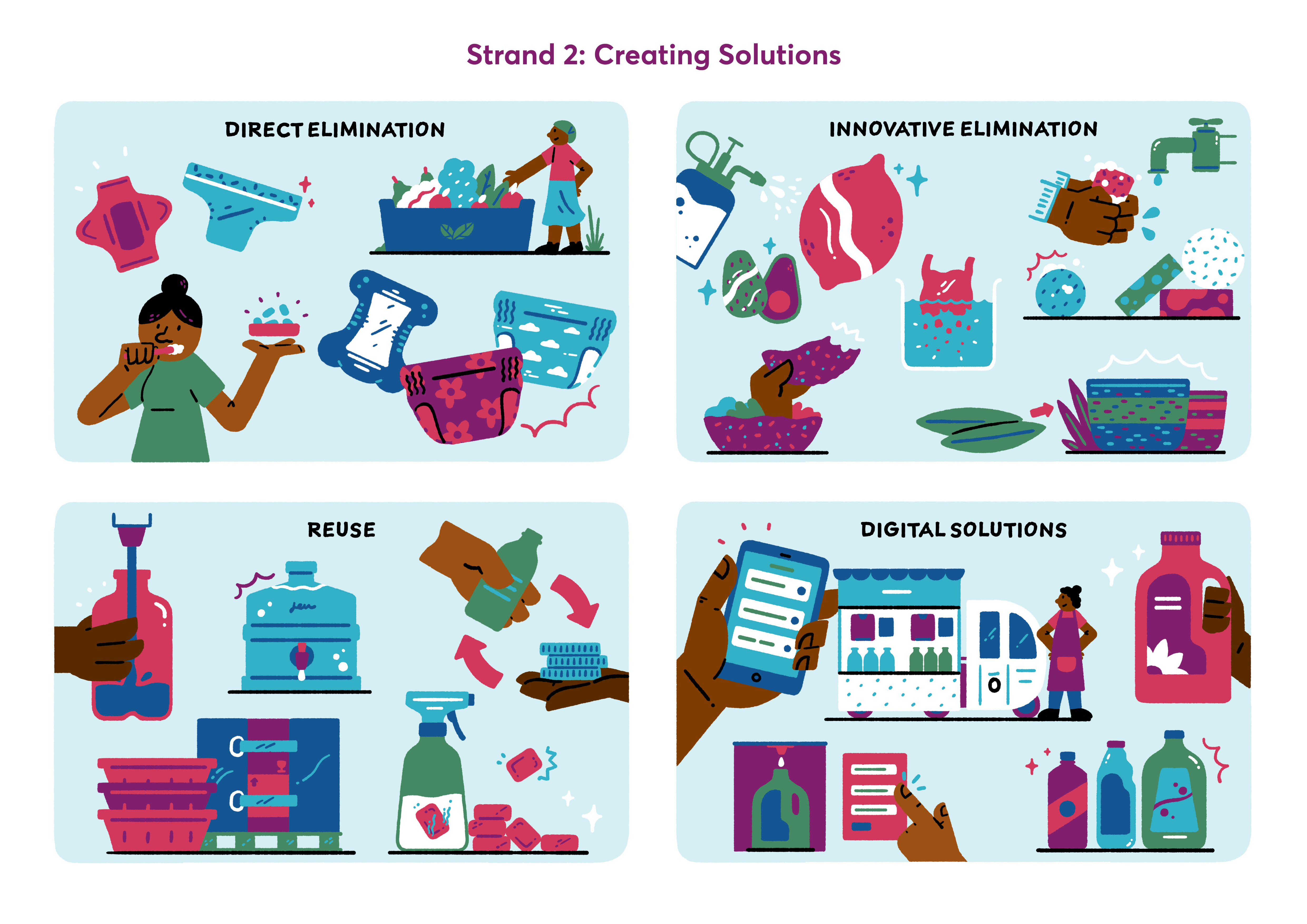The Afri-Plastic Challenge’s Strand 2 – Creating Solutions – seeks new or early-stage ideas that seek to reduce or eliminate plastic usage across Sub-Saharan Africa
The multiplying challenges of the climate crisis, conflict and COVID-19 have put more and more people across Sub-Saharan Africa at risk. While these old and new threats are slowing progress to achieve the Sustainable Development Goals and targets outlined in the Paris Agreement, nations across the continent are rising to the challenge and building transformative actions to build climate resilient lives and livelihoods, to accelerate the ambition of Nationally Determined Contributions, and to help communities recover from the COVID-19 pandemic.
Reversing the tide on marine plastic pollution requires preventing it from entering the marine environment in the first place. What previously has been perceived as a local disturbance is now recognised as a global challenge that is pushing individuals and businesses across the world to take the lead and find solutions that encourage reducing and reusing plastic waste. This call to action is spurred by the relatively new recognition that millions of tons of plastic end up in our oceans every year, the equivalent of one garbage truck full of plastic dumped into the ocean each minute.
Corporations across the globe are already waking up to the need to adopt sustainable practices, as evidenced by the announcement of 11 leading brands, retailers, and packaging companies, including Unilever, CocaCola and Ikea, to work towards 100% reusable, recyclable, or compostable packaging by 2025 [1]. Governments are also moving toward plastic bag and/ or straw levies and/or bans, including South Africa, Kenya, Chile, China, Colombia, and Vietnam as a first step toward wider plastic ‘rethink’ policies and incentives. [2], [3], [4]
Through the five Rs: rethink, redesign, reduce, reuse, and recycle, the solutions required must tackle eliminating plastics that do not serve a purpose (e.g. plastic straws), improving collection and waste management systems, and promoting innovative alternatives to reuse and reduce plastic waste. While scaling plastic waste collection and recycling is crucial, it cannot solve the problem alone. The quantities of waste produced easily outpace the development of waste management systems, and recycling is still not an economically or technically viable option for several types of plastic. [5]

The Afri-Plastics Challenge has launched its second strand – Creating Solutions. This strand is calling innovators with new or early-stage products, technology and/or services that seek to reduce or eliminate plastic usage across Sub-Saharan Africa to apply.
By the end of the second strand of the Challenge, successful community-centered products and services will have demonstrated a sustainable approach to reducing the reliance on plastic that also supports the empowerment of women and girls. In the long-term, the development of the innovators’ ideas into viable market solutions will encourage the creation of new, sustainable local enterprises, bringing economic opportunity to these communities and contributing to poverty reduction.
Earlier in July 2021, the first strand of the Afri-Plastics Challenge – Accelerating Growth – called on innovators with scalable and sustainable solutions to prevent plastic waste from entering the marine environment within Sub-Saharan Africa to apply. 15 finalists and three winners will be selected.
Launching in December 2021, the third strand – Promoting Change – will call for large-scale campaigns that raise awareness and engage women and girls in the plastics value chain. 15 finalists and three winners will be selected.
For more information on the criteria and application process for Strand 2, innovators should click here. The deadline for applications to the first strand of the Challenge will close on Wednesday, 01 December 2021 at 1200 GMT.
References
[1] Companies take major step towards a New Plastics Economy
[3] Recycling incentive scheme, United Kingdom
